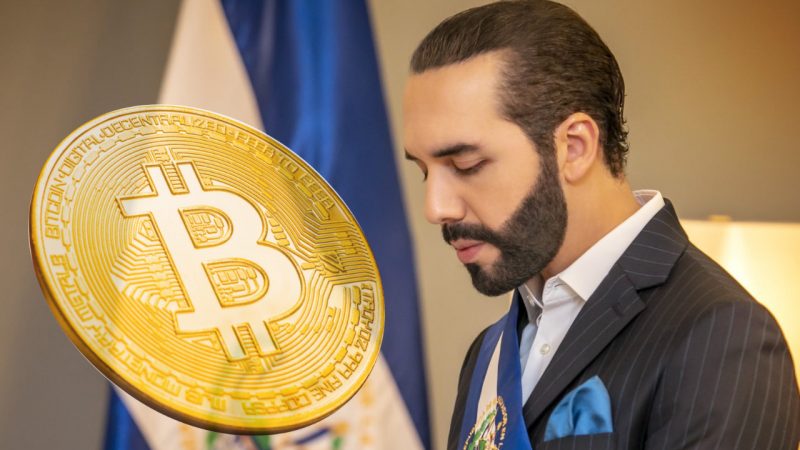Cryptocurrency has been a disruptive force in the world of finance, challenging traditional systems and offering new possibilities for the global economy. The question of whether cryptocurrency can ever become legal tender for a country is a topic that has gained increasing attention. In this blog post, we will explore the possibilities, challenges, and implications of cryptocurrencies becoming the legal tender of a nation. “Cryptocurrency as Legal Tender: A Paradigm Shift in Global Finance”
El Salvador’s Pioneering Move: Cryptocurrency as Legal Tender and International Reactions

In September 2021, El Salvador made history by adopting Bitcoin as legal tender alongside the U.S. dollar. This groundbreaking decision came with several significant implications:
1. Bitcoin as Legal Tender: El Salvador’s government passed a law that recognized Bitcoin as an official currency, on par with the U.S. dollar, within the country. This means that Bitcoin can be used for everyday transactions, including buying goods and services and even paying taxes.
2. The Chivo Wallet: To promote Bitcoin usage, the government introduced the ‘Chivo Wallet,’ enabling citizens to store, send, and receive Bitcoin. El Salvador even provided every citizen with $30 worth of Bitcoin to kickstart adoption.
3. International Response: El Salvador’s decision generated mixed reactions internationally. While some saw it as a bold move that could open up new economic opportunities and increase remittances, others expressed concerns about the potential risks associated with using a highly volatile cryptocurrency as a legal tender.
El Salvador’s Bitcoin Adoption: Cryptocurrency Discussions in Other Nations

El Salvador’s pioneering move sparked global discussions on cryptocurrency adoption. Here are some key points to consider:
1. Paraguay’s Bitcoin Bill: Paraguay, another Central American country, expressed interest in following El Salvador’s lead. In July 2021, a Paraguayan congressman proposed a bill to make Bitcoin legal tender, though it was in early development.
2. The Dominican Republic: In the wake of El Salvador’s decision, a Dominican senator proposed a bill to adopt Bitcoin as legal tender and create a legal framework for cryptocurrencies in the Dominican Republic.
3. International Monetary Fund (IMF) Concerns: El Salvador’s cryptocurrency move raised IMF concerns about potential global adoption. They cautioned against potential risks to monetary stability and the need for strong regulatory frameworks.
4. Wider Acceptance: Beyond Central America, countries in different regions have also discussed the role of cryptocurrencies in their financial systems. In Africa, for instance, several nations have been exploring the use of digital currencies as a means to promote financial inclusion and economic growth.
Cryptocurrency as Legal Tender: Overcoming Challenges and Considerations
While the idea of cryptocurrencies becoming legal tender for a country is intriguing, it comes with several challenges and considerations that need to be addressed:
- Volatility: Cryptocurrencies are known for their price volatility. The value of a cryptocurrency can fluctuate significantly in a short period, which could create uncertainty for both the government and its citizens.
- Regulatory Concerns: Many governments are concerned about the lack of regulations in the cryptocurrency space. Without proper oversight, there is a risk of fraud, money laundering, and other illicit activities.
- Technological Infrastructure: Adapting to a cryptocurrency-based financial system would require significant investments in technological infrastructure, such as digital wallets, internet access, and cybersecurity measures.
- Adoption and Education: Transitioning to a cryptocurrency-based system would require widespread adoption and education, which can be a lengthy and challenging process.
- International Relations: Cryptocurrency adoption as legal tender may affect international relations and trigger diplomatic and economic tensions.
Cryptocurrency as Legal Tender: Unlocking the Potential Benefits
Despite the challenges, there are potential benefits to using cryptocurrency as legal tender:
1. Financial Inclusion: Cryptocurrencies can provide financial services to the unbanked and underbanked populations, promoting financial inclusion.
2. Reduced Transaction Costs: Cryptocurrency transactions offer potential cost savings for individuals and governments due to their speed and lower fees.
3. Borderless Transactions: Cryptocurrencies enable cross-border transactions without the need for intermediaries, simplifying international trade and remittances.
4. Innovation and Economic Growth: Embracing cryptocurrencies could foster innovation, attract tech companies, and stimulate economic growth in a country.
Conclusion
The adoption of cryptocurrency as legal tender for a country is an evolving concept that raises both excitement and skepticism. El Salvador’s bold move towards cryptocurrency adoption hinges on addressing key challenges and concerns. As the world evolves in finance and technology, more countries may consider integrating cryptocurrencies into their financial systems. The future of cryptocurrency as legal tender remains uncertain, guaranteeing ongoing discussion and debate in the years ahead.